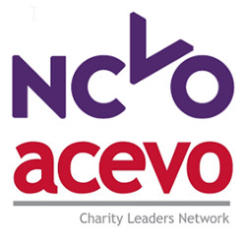Acevo and NCVO announced plans yesterday to work together on a joint strategy to create a more positive vision of the sector. This is a valuable development, and for more than one reason, says David Ainsworth.
Yesterday Acevo and NCVO agreed a framework to work more closely together to promote a more positive image of the charity sector. Yesterday the two organisations offered a joint statement saying their members had asked them to “make the case for a strong charity sector" and do more to rebut "negative stories about charities unfairly affecting the sector as a whole".
The two chief executives, Sir Stuart Etherington and Sir Stephen Bubb, will now develop a framework to "jointly develop new initiatives to promote the role of the sector in our society".
It’s very low on detail, but it’s still an extremely welcome move, for two quite distinct reasons.
The first is simply that the two organisations are the two foremost representatives of the sector as a whole, but are famous for their poor relationship, and have almost never previously launched a joint initiative. So it is good to see any sign of closer working.
For an outsider, it’s hard to know how true it is that the two bodies don’t get on. It’s apocryphal that the two long-term leaders, Sir Stephen Bubb and Sir Stuart Etherington, are reluctant to communicate with each other, and the two bodies have often campaigned quite separately on big issues.
But it can be overblown. After all, they do share common offices, at the Society Building in King’s Cross, and they have signed plenty of joint letters, backed many joint initiatives, just usually in partnership with at least two or three other bodies as well.
Nor is it always a bad thing if they have separate viewpoints. The sector benefits from the fact that the two bodies have very different styles. NCVO is inclined towards gentle persuasion, behind the scenes, to careful analysis and a lack of hysteria. Acevo, on the other hand, is far more outspoken, quicker to react, more apt to put its viewpoint in the newspapers.
But in general, the sector does have a problem that it has too many representative bodies, saying too many different things, too easily ignored by government and baffling to a media which needs clear, simple messages. So it is good to see these two most influential bodies thinking harder about how they can speak out together.
Which brings us on to the second point. It’s never been more vital that the sector does speak to the media with a clear voice, after two years in which there has been widespread criticism.
There have been many accusations: charities are wasteful of funds, they should not be allowed to campaign, they are too dominated by government; they pay chief executives too much; they invest money in an unethical way; they put too much pressure on their donors.
There are still some in the sector who question whether headline trust in charity is really affected by flash-in-the-pan stories in the media. They are probably right to question. Public opinion changes at glacial rates, too slowly to be seen, and headlines about fat cats soon disappear from memory. But the stories also reveal some deeply-held public prejudices which have the potential to do real long-term damage if they are not checked.
One or two of the accusations have merit, and the sector must accept its need to change. Most hold no water at all, and the answer is not navel-gazing and talk of transparency, but a better and clearer communications strategy.
Some work has already been done by the Understanding Charities Group, which has begun to produce a framework for defending and explaining the sector. But it’s good to see the big guns recognising the importance of this issue.
Charities need strong, simple lines to rebut these accusations, and most of all they need someone to be responsible for their defence. They need to frame answers, turn the debate back to the poor and vulnerable and disadvantaged, and also campaign for more positive coverage, more documentaries following the works of foodbanks and animal sanctuaries and youth centres as they try to help those suffering at the margins of society.
This is a difficult and unpleasant job – anyone who speaks out in public against the will of the Daily Mail will take a few knocks – and it is not surprising that when charities have been accused, their own trustees and press officers have been very reluctant to take up the cudgels in their defence. It was good to see Cancer Research UK and Age UK come out swinging recently against The Sun over administration costs.
Whether Acevo and NCVO really intend to provide this kind of spokesmanship remains to be seen – it’s worth noting that neither body has actually said what it will do, only that they’re thinking about some initiatives.
But at least this is being taken seriously.










